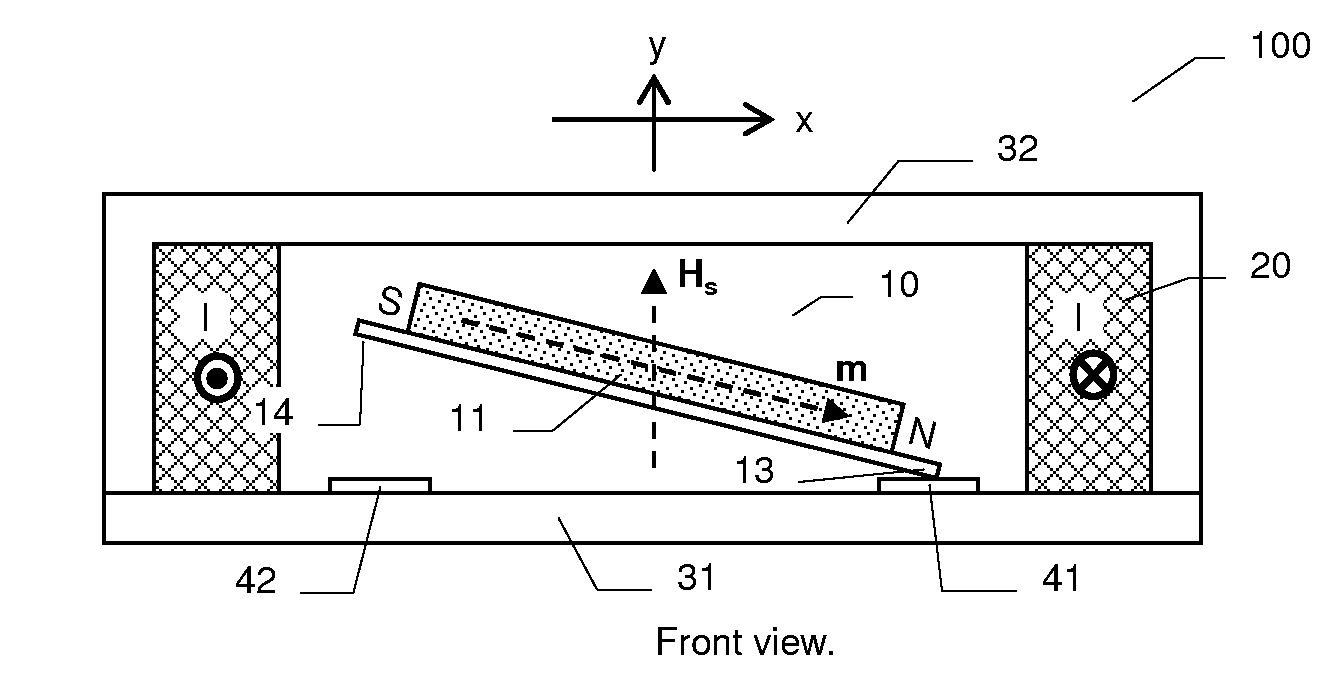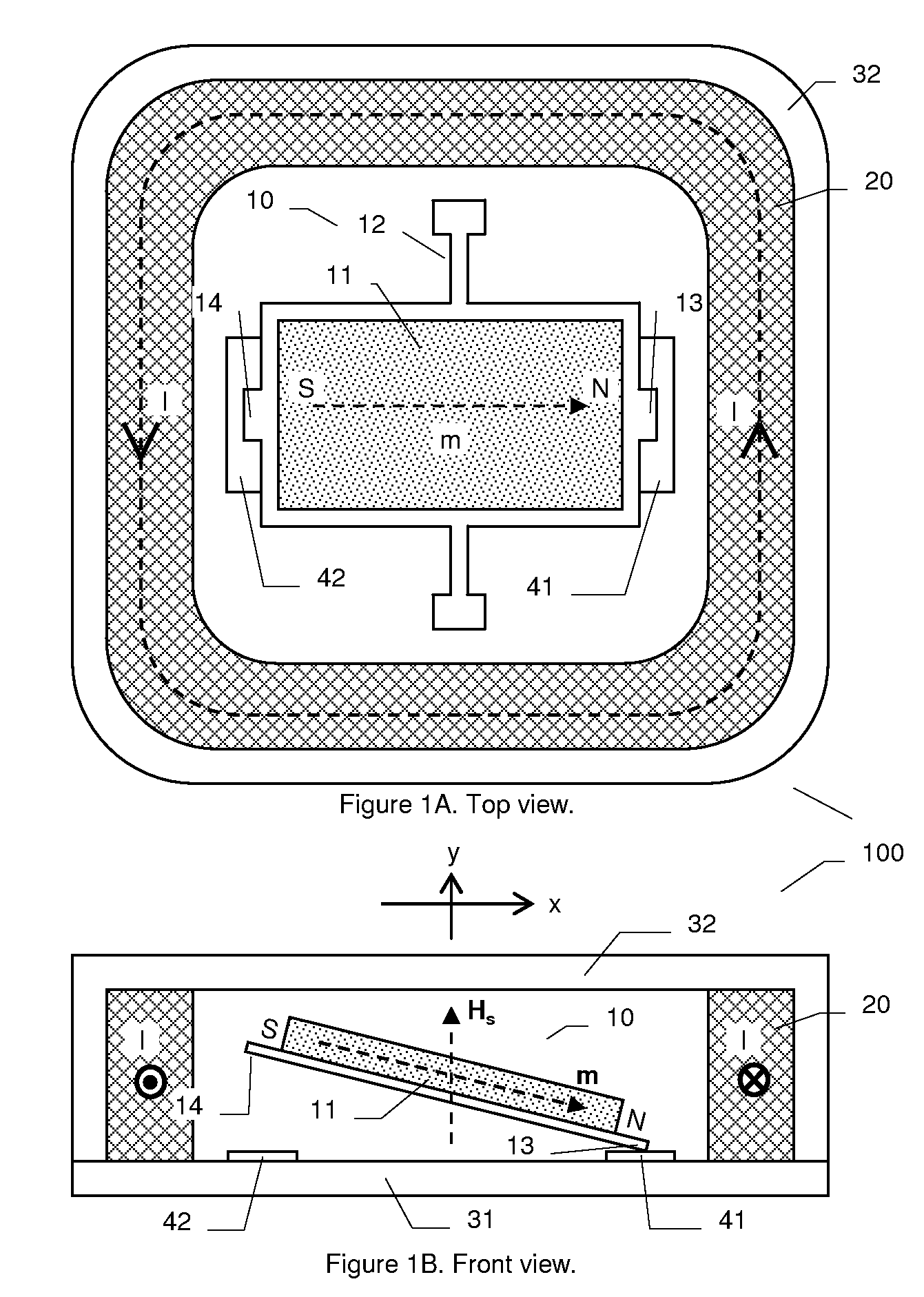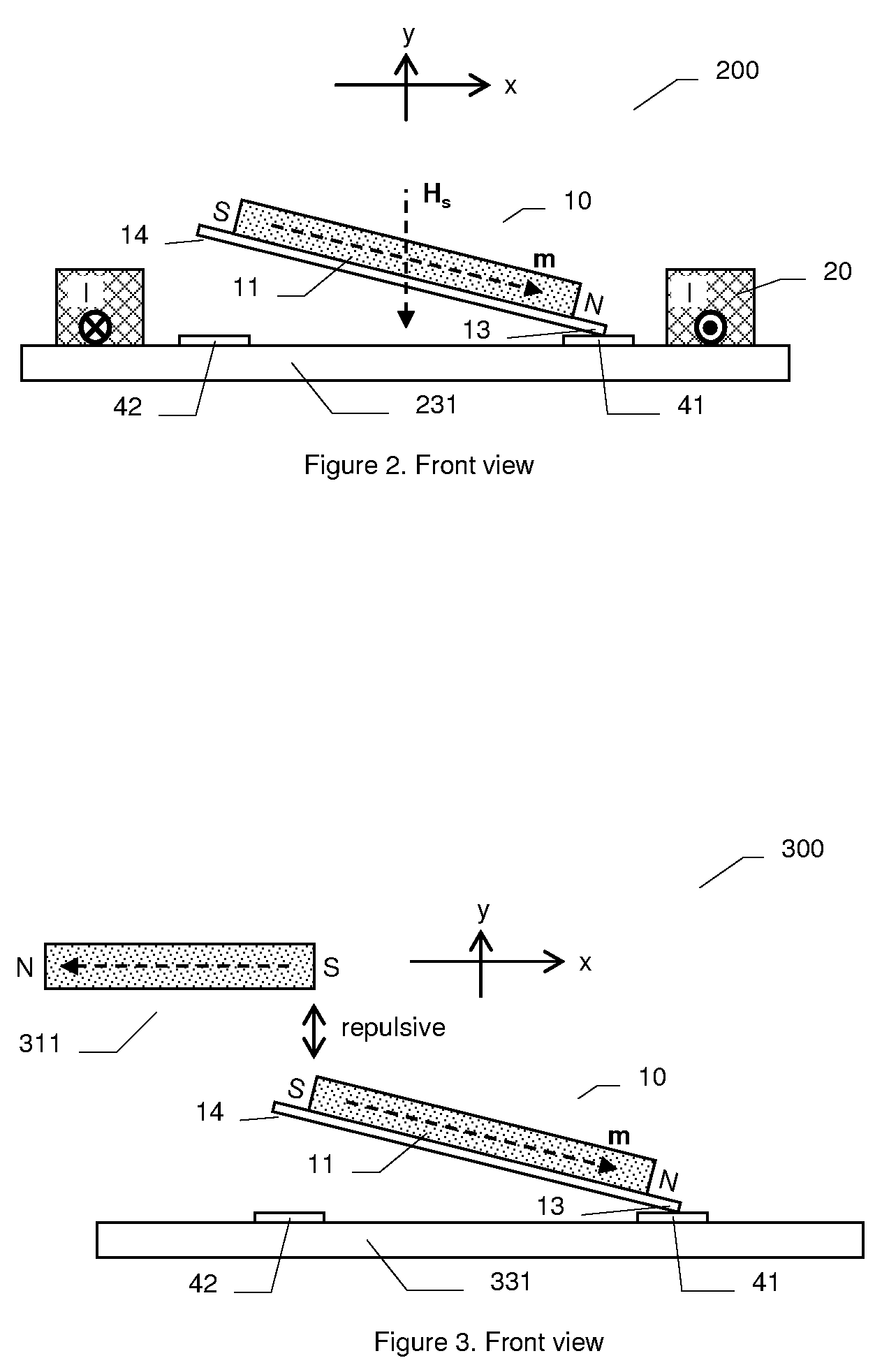Electromechanical latching relay and method of operating same
a latching relay and electromechanical technology, applied in the field of latching electromechanical relays, can solve the problems of large coil size, high unit-to-unit variability and high unit cost, and the “assembly-line” type process generally has relatively complicated structures, etc., and is impossible or very difficult to fabricate other than using conventional winding methods
- Summary
- Abstract
- Description
- Claims
- Application Information
AI Technical Summary
Benefits of technology
Problems solved by technology
Method used
Image
Examples
example 1
[0031]Assuming the first magnet having the following characteristics: length=4 mm (along long axis), width=4 mm, thickness=0.2 mm, volume V=length×width×thickness, remnant magnetization Br=μ0M=1 T, the magnetic moment μ0m=μ0M×V=3.2×10−9 T·m3. For a coil-induced magnetic field μ0Hs=0.05 T (Hs=500 Oe), the induced magnetic torque about the length center is Ts=μ0m×Hs=1.27×10−4 m·N (assuming m is perpendicular to Hs) which corresponds to a force of Fm=Ts / (length / 2)=6.4×10−2 N at the end of the first magnet. This force, combining with the flexure restoring force, needs to be larger than the pole attraction for cantilever switching. The above exemplary parameters show that for a relatively small coil-induced magnetic field (Hs=500 Oe), a significantly large torque and force can be generated. The torque and force can continue to increase with larger Hs (correspondingly larger coil current). Another point worth noting is that when the angle between m and Hs changes from perfectly perpendicu...
example 2
[0032]Assuming all the dimensions of the first magnet are reduced by an order of magnitude: length=0.4 mm (along long axis), width=0.4 mm, thickness=0.02 mm, remnant magnetization Br=μ0M=1 T, the magnetic moment μ0m=μ0M×V=3.2×10−12 T·m3. For a coil-induced magnetic field μ0Hs=0.05 T (Hs=500 Oe), the induced magnetic torque about the length center is Ts=μ0m×Hs=1.27×10−7 m·N (assuming m is perpendicular to Hs) which corresponds to a force of Fm=Ts / (length / 2)=6.4×10−4 N at the end of the first magnet. The force is still quite large in such micro dimensions.
Fabricating a Latching Relay
[0033]It is understood that a variety of methods can be used to fabricate the latching relay. These methods include, but not limited to, semiconductor integrated circuit fabrication methods, printed circuit board fabrication methods, micro-machining methods, and so on. The methods include processes such as photo lithography for pattern definition, deposition, plating, screen printing, etching, lamination, ...
PUM
 Login to View More
Login to View More Abstract
Description
Claims
Application Information
 Login to View More
Login to View More - R&D
- Intellectual Property
- Life Sciences
- Materials
- Tech Scout
- Unparalleled Data Quality
- Higher Quality Content
- 60% Fewer Hallucinations
Browse by: Latest US Patents, China's latest patents, Technical Efficacy Thesaurus, Application Domain, Technology Topic, Popular Technical Reports.
© 2025 PatSnap. All rights reserved.Legal|Privacy policy|Modern Slavery Act Transparency Statement|Sitemap|About US| Contact US: help@patsnap.com



